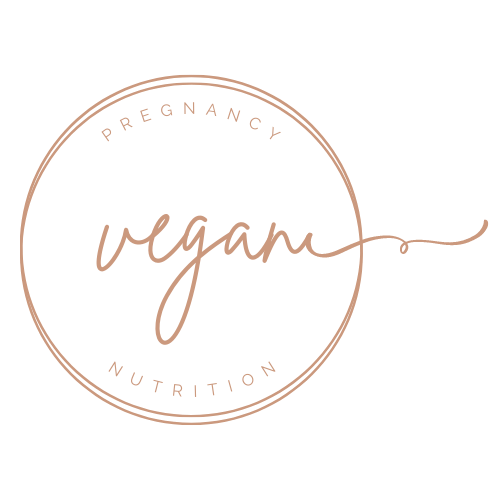Want to eat more veggies? 4 easy tips to try during pregnancy
written by Maya Bach, MPH, RDN
Full disclosure: I used to hate vegetables. Not "dislike" but actively avoid. I only started eating veggies - cucumber and raw carrots, to be exact - with ketchup (I know!) when I was in middle school. My diet growing up consisted of cereal, eggs, and peanut butter sandwiches.
Today, as a vegan dietitian, it's ironic that I now heavily rely on vegetables to support my nutrient needs. And for many of my clients, who are used to eating lots of veggies too, the thought of their favorite veg during pregnancy can make them run the other way.
If you're struggling with eating the veggies or want to increase the amount you're eating during pregnancy, here are four ways to rotate them into your weekly plan.
Remember: you don't need to eat a ton of veggies to meet your nutrient needs. And if you cannot eat them for a while, that's ok too - that's why we have prenatal supplements!
Tip 1: Boost your favorite carbs with veg
From oatmeal to pasta to baked potatoes, carbs can be our "vehicles" for sneaking in extra veggies. For example, if you're ok eating pasta, include shredded or spiraled summer squash, like zucchini, into the dish. One of my favorite meals if I'm not feeling like a salad: making savory oatmeal! Add fresh or frozen spinach to cooked oats, along with some spices and dairy-free cheese (I also add smoked paprika and nutritional yeast), and you have a veggie-heavy meal to enjoy for breakfast, lunch, or dinner!
Note: because swapping out carbs may impact the total calories of that meal, it may be a good idea to include an additional snack to ensure you're meeting your calorie needs to support each trimester.
Tip 2: Leverage dips, sauces, and spreads
Let's face it - we all love a good creamy dip, sauce, or spread. These foods can enhance our meal's taste and texture, from hummus to dairy-free cream cheese. So if you're able to eat a bagel, why not mix diced cucumbers or raw carrots into your favorite vegan cream cheese? Or, if you're ok eating plain avocado, can we include diced bell pepper to make a super avo spread? While it may be tempting to add other veg flavors, like onion and garlic, if you're struggling with nausea or aversions, it may be worth keeping your spread simple. A dash of salt can go a long way to enhancing the flavor of many foods!
Are you struggling with heartburn? It may be best to avoid acidic sauces like tomato-based pasta sauces as these can make symptoms even worse. Consider a vegan kale pesto to make your meal creamy and flavorful without the unwanted side effects.
Tip 3. Enjoy a cold smoothie
It sounds basic, I know, but a smoothie helps you in two ways if you're a vegan mom-to-be. First, as you know, smoothies are no-cook methods of incorporating veggies into your day. Second, because they're cold and cold foods tend to trigger feelings of nausea less than warm foods, you may be better able to tolerate them during pregnancy.
My favorite easy vegan smoothie recipe:
Frozen banana
1/2 cup frozen spinach (or 2 - 3 handfuls fresh)
1/4 yellow squash
Good Karma Flax milk + Protein
Chia seeds
Vegan protein powder (this is a vegan mama favorite, but please discuss all supplementation, including protein powders, with your primary care provider)
Tip 4: Change up how you cook veggies
You're not alone if raw salads aren't doing it for you. When you cook foods - by adding heat and liquid - you alter that food's physical and chemical structure. Not necessarily for better or worse! Raw tomatoes, for example, are naturally high in Vitamin C. When you cook tomatoes by roasting or sauteeing them, the amount of Vitamin C significantly decreases while the amount of lycopene, another beneficial antioxidant, increases. Changing how you eat your veggies can give you a nutrient boost and make it easier for your stomach to digest fibrous veggies. You can think of cooking as almost "predigesting" your food in a way (sounds not so tasty, I know!)
My favorite cooked veggie: air-fried broccoli florets with nutritional yeast, smoked paprika, and sesame seeds. I used to think air fryers were overhyped, but for many of my clients and me, they can be a game changer, shortening cooking time and switching up how you eat your veggies.
Bottom line
Remember, it's ok if you don't have veggies every day. Are they nutrient-dense foods? Of course! Will eating them make or break your vegan pregnancy nutrient goals? No. Experiment with different cooking methods. Start with what you're able to eat and go from there. The last thing we want to do is force ourselves to eat foods, like veggies, during pregnancy.
Sources:
Grow a healthy baby as a vegan mom-to-be!
Join like-minded women inside the Vegan Pregnancy Collective to get the tools you need so you can stop worrying and wasting time Googling all things vegan pregnancy!







